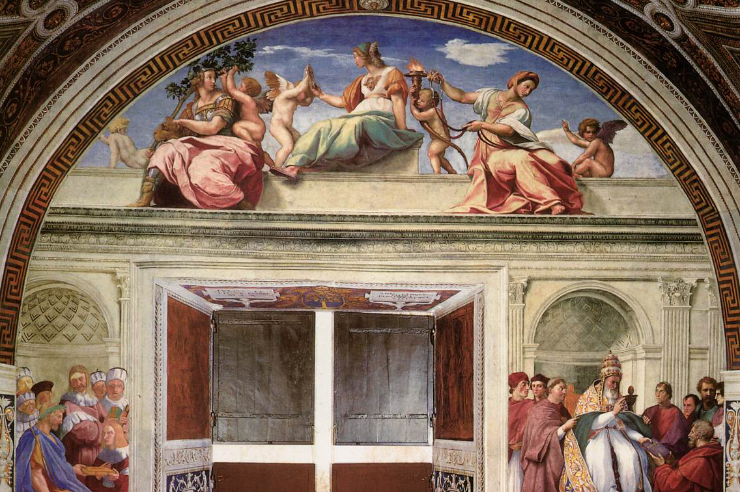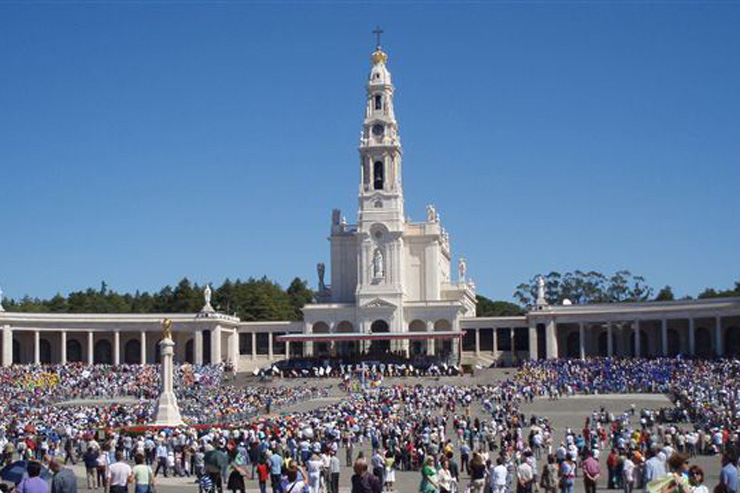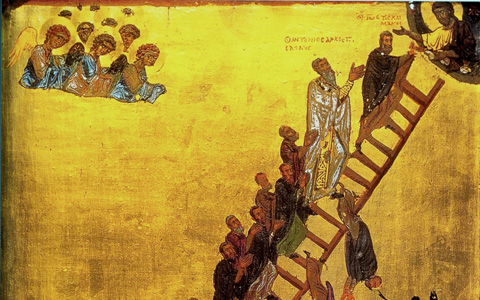
“The Cardinal and Theological Virtues” (detail) by Raphael [Public domain], via Wikimedia Commons
What would you say is your greatest hope? What is the one thing you would identify if you were pressed to offer only one answer to this question: What is your greatest hope?
Scripture actually has a great deal to say about this virtue of hope, not the least of which:
“For whatever was written previously was written for our instruction, that by endurance and by the encouragement of the scriptures we might have hope.” (Romans 15:4)
But what do we mean by hope? What exactly does the term hope express to us individually?
Some have described hope as the desire for the possession of something that is not yet possessed. That is a fairly good description. For certainly hope has to pertain to something we do not yet possess, otherwise there would be no need to hope for the object which we desired.
“Now hope that sees for itself is not hope. For who hopes for what one sees?” (Romans 8:24b)
Of course, this “object” does not have to refer to a physical object or a thing. It might be a specific set of circumstances we would like to see realized, or It might be defined as a condition that we wish to find ourselves in. The point is that it is something that is not fulfilled in the present moment, but that we none the less retain a desire to see realized in the future.
We all have hopes, but for many, their fulfillment is often frustrated, it is too long delayed, or it never comes at all. The issue may be that we need to adopt a more theological or what we could call a spiritual understanding of the virtue of hope—the understanding that the Lord intends us to have.
Many people can answer the question asked at the beginning of this reflection about what it is they hope for. Indeed, some people can describe very clearly what their hopes are. They can outline with considerable detail exactly what it is they would like to see happen in their lives and, in some cases, they can also give the exact timeline for the realization of their hopes. Unfortunately, that is where the problem begins.
It is perfectly appropriate for us to hope for things we may want during our earthly life, and even to envision them for ourselves. But it is another matter when we talk about the theological or spiritual definition of hope. The famous Carmelite Mystic, St. John of the Cross, explained hope a bit differently than many people understand it today.
For John, hope is described as “being unconditionally open to God’s future.” In other words, we should not attempt to define, describe or place limitations on what our hopes are as it relates to our spiritual life or our expectations of what God will do in our daily life. Instead, we need remain open to whatever it is God offers us as the fulfillment of our hopes, because our ultimate Hope rests in God’s promise of eternal life.
“…as we await the blessed hope, the appearance[c]of the glory of the great God and of our savior Jesus Christ…” (Titus 2:13)
“But as it is written: ‘What eye has not seen, and ear has not heard, and what has not entered the human heart, what God has prepared for those who love him…’” (1 Corinthians 2:9)
So, we should live this life with the hope of and an eye focused on this eternal promise. But it is also true that we do not know the path the Lord has marked out for us in this world, and there are good reasons the Lord only reveals this to us slowly, one stage at a time.
First, the Lord wants us to remain continually dependent on His providence for our lives. He wants us to understand that He truly is the source of everything that sustains us, and He wants us to seek His assistance in all the areas of our life. Here is a scripture verse well worth repeating to ourselves daily.
“For I know well the plans I have in mind for you—oracle of the Lord—plans for your welfare and not for woe, so as to give you a future of hope.” (Jeremiah 29:11)
Second, the Lord knows we have a limited ability to understand eternal matters and how they may relate to what it is we hope for in this life. He also knows this is the degree to which we will continue to be disappointed when what we hope for is inconsistent with what He has planned for us.
“Trust in the Lord with all your heart, on your own intelligence do not rely…” (Proverbs 3:5)
So, God wants us to trust entirely in Him and in His plan for us. He literally wants us to hope only for the continual fulfillment of His Will in our lives without our attempting to define the object of our hope. This is actually a very simple thing to do. We must simply rise each morning and say to the Lord the most powerful four-word prayer found anywhere, the one given to us by our Lord—Thy Will Be Done.
Of course, then we have to live the rest of each day in such a way that it will be obvious that we have really placed all our hopes in the Lord. But if we do say that prayer, if we really mean it, if we really begin to live it… we will experience a freedom from worry and anxiety and fear like we have never known before in our lives.
“May the God of hope fill you with all joy and peace in believing, so that you may abound in hope by the power of the holy Spirit.” (Romans 15:13)
Let us pray that we might all hope for what it is the Lord most wants to give us in this life, as He uses all the circumstance of our life to prepare us for Eternity with Him.
Copyright © 2019 by Mark Danis
 Please share this post on Facebook and other social media below:
Please share this post on Facebook and other social media below:














